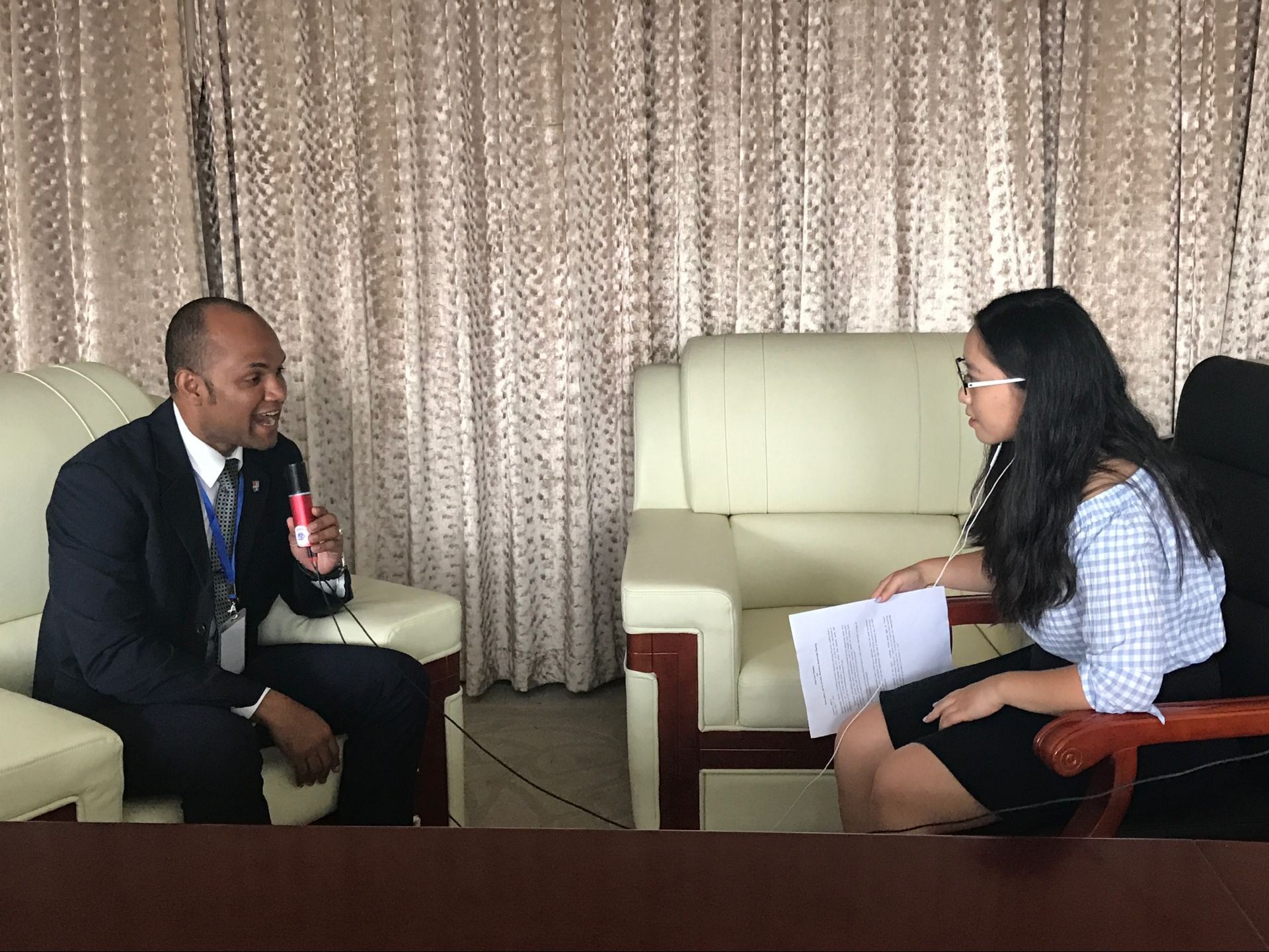China’s poverty reduction experience inspiring for developing countries
chinagate.cn by Wu Yan, July 13, 2017 Adjust font size:

Martin Soriana Matias, province director of Ministry of the Youth from the Dominican Republic, said he is honored to learn from China in sectors like education, transportation, ecological development and especially tourism, during an exclusive interview with CIIC.
On July 3rd, China Internet Information Center (CIIC) interviewed some policy makers from developing countries at International Poverty Reduction Center in China (IPRCC), who are participating in a training program to learn about China’s experience in poverty reduction. Their responses show that there are a variety of problems in developing countries in regards to poverty and China’s experience has inspired them to formulate solutions.
Samuel Salvado Rodriguez Coronados, manager of a tourism company from Panama, said that the most urgent poverty issue to be solved in his country is the health problem, which can be improved through the construction of new hospitals with better supplies for poor people. He stated that another urgent issue is food insecurity, as the rainy summers permit only two food seasons. As this problem is indirectly caused by a lack of farmers’ organizations, they hope to learn from China’s development programs and create agricultural development programs that promote farmers’ organizations and profit the farmers. Mr. Rodriguez Coronados said he is particularly inspired by China’s programs because it gets all people involved in alleviating poverty. He noted, “It’s difficult with the differences in governmental institutions, but it’s a dream that we have.” The seminars have left him optimistic, as China’s experience with poverty reduction has made him believe that Panama can do it too.
Martin Soriana Matias, province director of Ministry of the Youth from the Dominican Republic, said that that they also share problems in healthcare. For new technology and better conditions, they are remodeling existing hospitals, but slowly and simultaneously which causes inconveniences. To solve rural poverty, the President of the Dominican Republic regularly surprises farmers with visits, where he listens to their needs and gives money to cooperatives to fund farming projects. The Dominican Republic’s participant delightedly noted that “we have a certain connection, this country (China) and our country”, as the President of China conducts surprise visits to rural areas as well. The Dominican Republic is honored to learn from China and inspired by China’s plans in education, transportation, ecological development and especially tourism. Its participant has enjoyed visiting rural areas and talking to farmers, and wishes for more face-to-face communication with farmers in programs like this one in future. He commented on forging a closer relationship with China, “That’s why I am so motivated, because I know that we can implement these ideas in our country, and I hope that my government and your government can have a closer relationship, and cooperate on more problems.”
Kelebaone Felicia Tau, superintendent (sub-district corp production officer) of the Ministry of Agricultural Development and Food Security from Botswana, said that the most urgent issue to be solved in Botswana is its high unemployment rate among its youth, both graduate and non-graduate, which leads to a high crime rate. She congratulated the Chinese government for its achievement in reducing poverty. “It gives hope that through great effort and commitment, reducing poverty is possible.” In Botswana, most projects are individual-orientated and farming is still traditional. She hopes that Botswana will learn from China’s programs by establishing cooperatives and using technology to improve productivity and produce. She is amazed at how the government can bring individuals with different backgrounds, mindsets and attitudes to work together so well to achieve a common goal. She also wishes that Batswana officers can visit China in person to learn how to organize cooperatives and formulate poverty-reducing strategies. She ends the interview by talking about Botswana and China’s “good working relationship” and thanks China for the experience.
The participants are thankful for the experience and they will take what they have learnt from China back to their home countries. Through knowledge sharing and cooperation, developing countries can benefit a lot in poverty reduction. Because in the words of Mr. Rodriguez Coronado: “It is very hard work, but it’s possible.”
To promote knowledge sharing on the cause, CIIC is joining hands with the Food and Agriculture Organization (FAO) of the United Nations. They will work together to launch a lab in September, exploring innovation and creative thinking to better target the needs of other countries. With its expertise in communication, CIIC will have storytelling sessions and workshops, to collect social wisdom and get more people involved.
